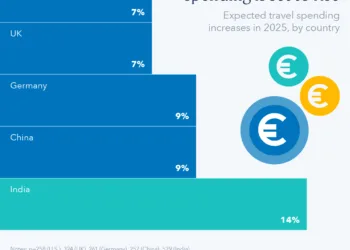The Growing Appeal of Vacant and Independent Hotels in Europe
As the hospitality sector evolves, hotel investors are sharpening their focus on specific property types that promise robust returns. According to the 2024 European Hotel Investors Intentions Survey conducted by CBRE Research, the landscape is increasingly favoring vacant properties and independent hotels. This trend reveals critical insights into market dynamics and investor priorities amidst an ever-changing economic environment.
Investor Preferences: A Snapshot
Vacant Properties Lead the Pack
Vacant hotels have emerged as the top choice among hotel investors in Europe. The survey indicates that 36% of the participants prioritize investing in these unloved gems of the hospitality industry.
- The Allure of Vacant Properties: Investors are turning towards vacant hotels for several reasons:
- Repositioning Opportunities: Many investors view vacant properties as a blank canvas, offering the chance to repurpose or renovate. This potential for transformation is a key driving factor.
- Cost Advantages: Acquiring vacant properties can come at lower price points compared to established hotels, allowing for significant capital improvements to be made post-purchase.
- Market Gaps: In certain locales, there might be a shortage of specific hotel types or brands, allowing investors to fill these gaps after revitalizing a vacant property.
Independent Hotels on the Rise
Following closely behind vacant hotels, independent hotels are securing a noteworthy share of investor focus, with 28% of respondents favoring them as prime investment opportunities.
- Why Choose Independent Hotels?:
- Brand Flexibility: Independent hotels provide the opportunity for owners to create unique branding and guest experiences, setting them apart from chain competitors.
- Diverse Market Appeal: These properties often attract niche markets and can cater to personalized experiences, which are increasingly in demand among travelers seeking authenticity.
- Less Corporate Red Tape: Owners of independent hotels can often make decisions more quickly without the constraints of a corporate structure, allowing for agile adaptations to market trends.
Market Context and Implications
Economic Climate
The hospitality sector is still navigating post-pandemic recovery, and investors are adjusting their strategies accordingly. The emphasis on vacant and independent hotels reflects not only a reaction to current trends but also an anticipation of future shifts in traveler behavior and market demands.
Competitive Landscape
As competition intensifies, understanding investor intentions is critical for stakeholders in the hotel industry. The trend towards vacant and independent hotels suggests a broader shift where creativity, innovation, and personalization become paramount in attracting guests and sustaining long-term profitability.
Future Prospects
With the hospitality industry’s landscape evolving rapidly, the interests of investors could signal forthcoming developments in property management, customer engagement, and overall hotel experience design. The focus on vacant and independent hotels may pave the way for diversified offerings that meet the evolving needs of travelers.
In summary, the growing investor interest in vacant and independent hotels reveals significant shifts in the hospitality market. This evolving landscape underscores the need for agility and foresight among industry stakeholders to capitalize on emerging opportunities.






